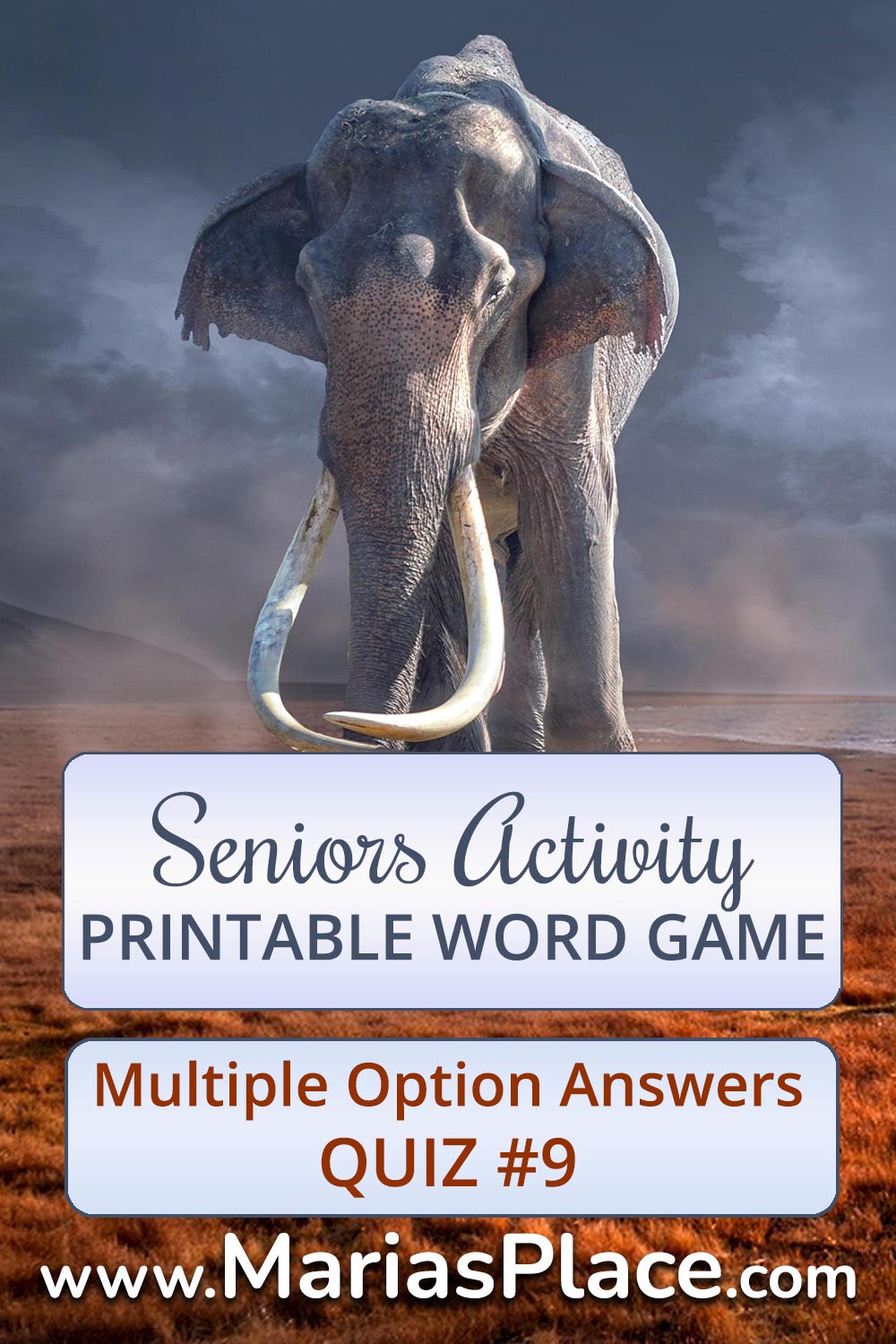
ABC Quiz #9
General Knowledge Quiz.
Short Description:
The questions in this quiz with multiple choice answers can be used for reminiscing and factfinding too.
Google any that you find interesting and find out more about the subjects.
If you don’t want to see the options, put a sheet of paper below the printed worksheet question. When you have thought of an answer, move the paper down to see if it is among the choices.
For more similar activities, visit our Quizzes page.
Directions for Caregivers:
If the person you are with has good general knowledge, ask the question first, wait a few seconds and then, if they don’t know the answer, give them the answer options. Make it a social activity where you do it together.
The advantage of a quiz with multiple choice answers is that, depending on the ability of the participants, you can choose to use them or not.
You can stretch this activity further by introducing some reminiscing. If a question is about food, a country, etc., have a little chat about it before moving to the next question.
Quizzes don’t have to be competitive; the main objective is to have fun. If you want to be more serious about it, make teams of equal ability and have a quiz competition.
If you have different abilities within the group, always ask the participants not to answer until all the answer options are readout. That will give everyone a chance to share their opinion, not just the fast thinkers.
You can stretch this activity further by introducing some reminiscing. If a question is about food, a country, etc., have a little chat about it before moving to the next question.
With early to middle-stage memory care/dementia, stress that it is not a competition. Encourage guessing the answer even if the participant doesn’t know it. You can also give two instead of three options if you want to make it easier. The objective is inclusive, active participation where nobody feels silly for getting it wrong.
Use this as an opportunity for reminiscing about the different topics in the questions.






